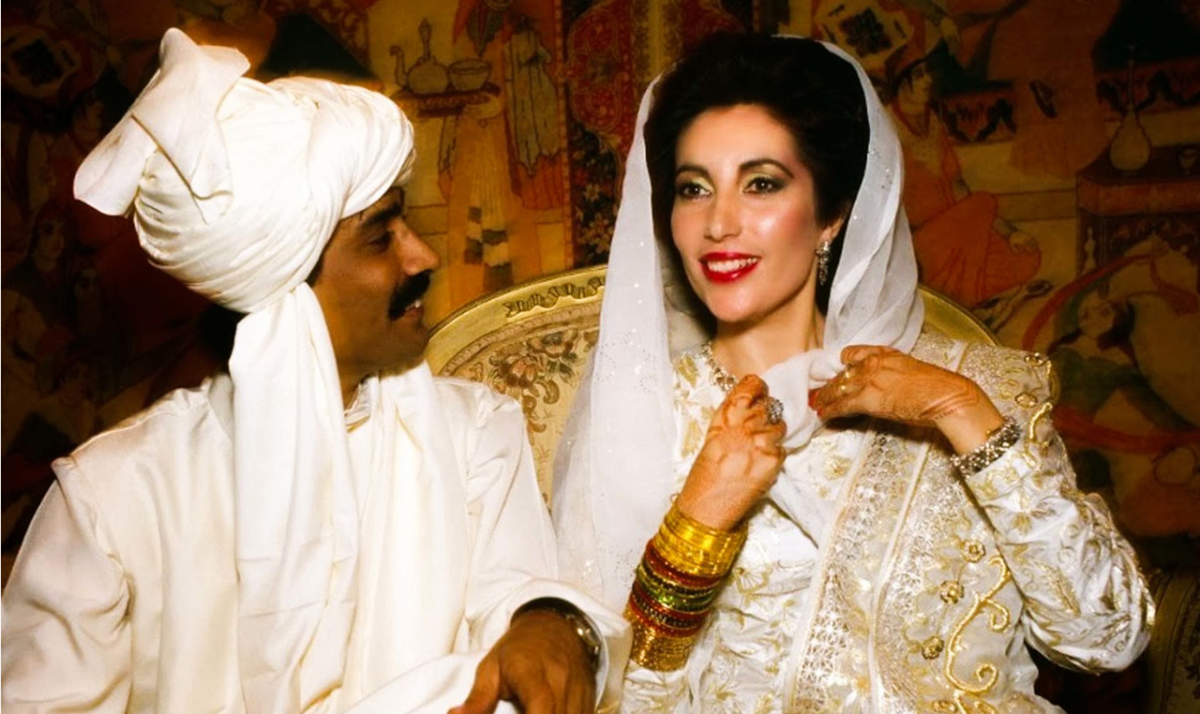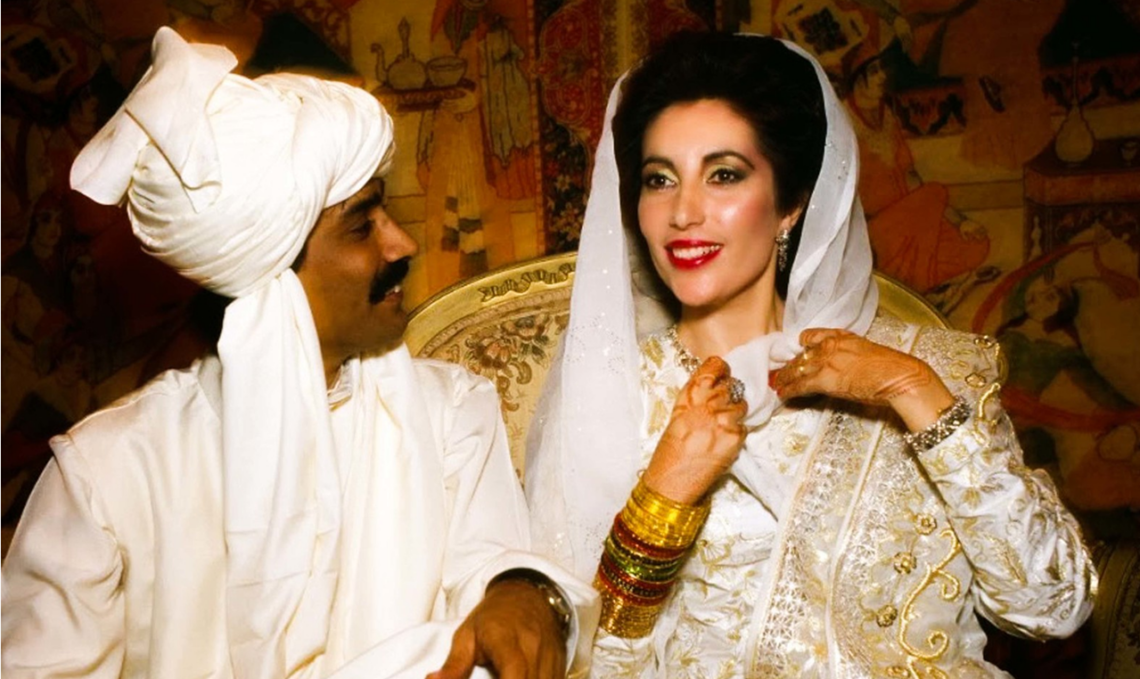The 1996 BBC documentary, “Princess and the Playboy,” delves into the tumultuous life of Benazir Bhutto, the first female Prime Minister of Pakistan, and her husband, Asif Ali Zardari, nicknamed the “playboy” by the media. The film explores their controversial relationship against the backdrop of Pakistan’s political landscape, marked by corruption, assassination, and power struggles.

Benazir Bhutto – From Political Heiress to Prime Minister:
Born into a prominent political family, Benazir Bhutto was the daughter of Zulfiqar Ali Bhutto, a charismatic leader who served as Prime Minister. After her father’s execution in 1979, Benazir emerged as a symbol of resistance against the then-military regime. Her Oxford education, combined with her natural charisma and fiery speeches, resonated with the Pakistani public yearning for democracy.
Asif Ali Zardari – From Businessman to Political Powerhouse:
Asif Ali Zardari, a young businessman, entered Benazir’s life in the early 1980s. Despite concerns about his flamboyant lifestyle and alleged business dealings, Benazir married him in 1988. Their union was seen by some as a political alliance, while others viewed it as a love story defying societal expectations.
The Intertwined Destinies of Politics and Personal Life:
The documentary sheds light on the challenges Benazir faced as both a political leader and a wife. Accusations of corruption against Zardari and his family tarnished Benazir’s image and became a potent weapon in the hands of her opponents. The film explores how these accusations impacted her political career, leading to her two elected governments being dismissed by the President on charges of corruption.
The Playboy Label and its Implications:
The documentary’s use of the term “playboy” to describe Zardari sparked much debate. While some saw it as an accurate portrayal of his lifestyle before marriage, critics argued it was a sexist and unfair characterization that undermined his political contributions. The film navigates this debate by presenting different perspectives, allowing viewers to form their own conclusions.
Beyond the Controversy – A Glimpse into a Complex Relationship:
Despite the controversies surrounding their marriage, the documentary also reveals the couple’s deep love and unwavering support for each other. Interviews with friends and colleagues offer insights into their complex relationship, showcasing their individual personalities and the dynamic they shared.
A Story with Lasting Impact:
“Princess and the Playboy” remains a significant piece of documentary filmmaking due to its exploration of a complex and multi-layered story. It not only sheds light on a tumultuous period in Pakistani history but also sparks conversations about gender roles, political corruption, and the challenges of balancing personal life with public service.
Legacy of the Documentary and its Characters:
Benazir Bhutto was tragically assassinated in 2007, leaving behind a legacy of struggle for democracy and women’s rights. Asif Ali Zardari later served as President of Pakistan from 2008 to 2013, facing his own share of controversies during his tenure. Their story, despite its complexities, remains a reminder of the intertwined nature of politics, personal life, and the enduring search for stability in a nation grappling with its own identity.
Conclusion:
The BBC documentary, “Princess and the Playboy,” offers a captivating and controversial glimpse into the lives of Benazir Bhutto and Asif Ali Zardari. By highlighting both the controversies and the genuine connection between them, the film invites viewers to engage with a complex and multifaceted narrative that continues to resonate with audiences today.

















